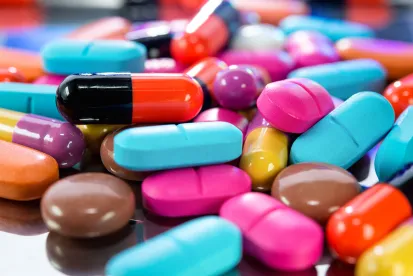This is the third article examining certain of the patent related provisions of the Trans-Pacific Partnership (TPP) from the WikiLeaks released final “agreed version of the TPP chapter on intellectual property rights. The first article, which examined patentable subject matter and grace periods, can be found here. The second article, which examined the provisions relating to patent revocation, publication of patent applications and procedures for adjusting patent term due to an unreasonable delay by a patent office, can be found here. In this article, we examine the controversial provisions relating to the exclusivity period for biologics.
The exclusivity period for biologics was one of the major issues that held up the negotiations of the TPP. During the negotiations, the U.S. and Japan favored longer periods of exclusivity (up to 12 years) while Australia and New Zealand favored shorter (up to five years).
What is the difference between data and market exclusivity?
Data exclusivity refers to the period of time following market approval during which a biosimilar manufacturer cannot use the safe and efficacy data (such as preclinical and clinical trial information) of an innovator company. For example, in the U.S., a biosimilar application cannot be submitted to the U.S. Food and Drug Administration (FDA) during the period of data exclusivity (which is four years).
In contrast, market exclusivity refers to the period during which a biosimilar manufacturer cannot be approved for sale; however, a biosimilar manufacturer may use the data of the innovator company for review of its regulatory application. Currently, the U.S. FDA provides eight years of market exclusivity for biologics. The four-year data exclusivity plus the eight-year market exclusivity provides for a total exclusivity period in the U.S. of 12 years.
Article QQ.E.20 of the TPP
The exclusivity period for biologics is provided in Article QQ.E.20 of the TPP which is reproduced below.
Article QQ.E.20: {Biologics}
1. With regard to protecting new biologics, a Party shall either:
(a) with respect to the first marketing approval in a Party of a new pharmaceutical product that is or contains a biologic, provide effective market protection through the implementation of Article QQ.E.16.1 and Article QQ.E.16.3 mutatis mutandis for a period of at least 8 years from the date of first marketing approval of that product in that Party; or alternatively
(b) with respect to the first marketing approval in a Party of a new pharmaceutical product that is or contains a biologic, provide effective market protection:
(i) through the implementation of Articles QQ.E.16.1 and QQ.E.16.3 mutatis mutandis for a period of at least 5 years from the date of first marketing approval of that product in that Party;
(ii) through other measures; and
(iii) recognizing that market circumstances also contribute to effective market protection to deliver a comparable outcome in the market.2. For the purposes of this Section, each Party shall apply this provision to, at a minimum, a product that is, or alternatively, contains, a protein produced using biotechnology processes, for use in human beings for the prevention, treatment, or cure of a disease or condition.
3. Recognizing that international and domestic regulation of new pharmaceutical products that are or contain a biologic is in a formative stage and that market circumstances may evolve over time, the Parties shall consult after 10 years, or as otherwise decided by the TPP Commission, to review the period of exclusivity provided in paragraph 1 and the scope of application provided in paragraph 2, with a view to providing effective incentives for the development of new pharmaceutical products that are or contain a biologic, as well as with a view to facilitating the timely availability of follow-on biosimilars, and to ensuring that the scope of application remains consistent with international developments regarding approval of additional categories of new pharmaceutical products that are or contain a biologic.
A choice between one of two alternatives
Article QQ.E.20, provides countries with two options for providing a biologics exclusivity period. These options are:
-
A period of at least eight years from the date of first marketing approval; or
-
A period of at least five years from the date of first marketing approval as well as “protection through other measures” (while recognizing that “recognizing that market circumstances also contribute to effective market protection”).
Regardless of the option a country chooses, the article is clear that the option selected must provide a “comparable” outcome in the market. Because the article provides varying transition periods for each country, these provisions will come into effect gradually during the next decade. Interestingly, the article also provides that the parties to the agreement will consult after 10 years (unless otherwise decided by the TPP commission), to review the period of exclusivity.
Does the TPP provide data exclusivity, market exclusivity or both?
The provisions of Article QQ.E.16.1 and Article 16.3 as well as Article QQ.E.20, appear to provide only “market” exclusivity for biologics. It is currently unclear whether or not any period of “data” exclusivity can be built into the eight-year period recited under Article QQ.E.20.
Other items of concern
Under the second option, Article QQ.E.20 provides that exclusivity for biologics can be achieved “through other measures”. It is unclear what those provisions might be. In addition, the article also refers to a “comparable outcome in the market”. Given the price tags of biologics, it is hard to see how a three-year difference could result in a comparable outcome.
What has changed?
Not much. Several countries will not have to make any changes to their laws providing biologic exclusivity. For example, the U.S. will not have to shorten its 12-year exclusivity period and Japan and Canada, which each provide eight-years exclusivity, will be able to maintain that number as well. Australia and New Zealand have indicated that their five-year exclusivity periods meet the requirements of the TPP and expect no change. While Mexico did not have any specific legislation providing for data protection for biologics, Mexican courts have been contemplating the possibility of having the period of five years pursuant to NAFTA as the minimum period of protection. Of all the signatories to the TPP, only Brunei currently provides less than five years of exclusivity.
What has the reaction been and where do we go from here?
As with most things, the reaction the TPP in the U.S. depends on who you ask. Both the Biotechnology Industry Organization (BIO) and Pharmaceutical Research and Manufacturers of America (PHARMA) expressed disappointment that the TPP failed to include a 12-year exclusivity period. BIO expressed concern that while the TPP would not impact the 12-year exclusivity period in the U.S., it might “chill global investment” and slow the development of new biologics. Doctors without Borders were far more critical stating that “the TPP will still go down in history as the worst trade agreement for access to medicines in developing countries”.
Hillary Clinton has stated that she believes that pharmaceutical companies got more benefits and consumers fewer. Senator Orrin Hatch (a supporter of the 12-year exclusivity period) has expressed concern that the TPP does not provide enough protection to foster global innovation. On November 20th, House Speaker Paul Ryan expressed concern about the level of intellectual property protection available for biologics in the TPP as well as other aspects of the agreement. Specifically, he stated, “I’m concerned about biologics, quite frankly. There’s other issues I’m concerned about”. He indicated that he believes that Congress can vote on the TPP in 2016 but he is not sure when. Moreover, he stressed that he wants to ensure that the deal meets the objectives set out by Congress in the Trade Promotion Authority (TPA) law. He stated, “Let me back up and say one thing: getting it right matters. This will be the largest trade agreement. It’s 40 percent of gross domestic product. And the goal here, and the reason why we passed TPA is because we need to be writing the rules of the global economy.” Speaker Ryan also made it clear that the TPP should ensure strong IP protections around the world.
Time will tell when and if Congress will vote on the TPP in 2016. Additionally, given that several members of Congress are unhappy with the exclusivity provisions for biologics in the TPP, it will be interesting to see whether or not the Obama administration will have to renegotiate the biologics provisions to ensure greater protection for biologics.




 />i
/>i